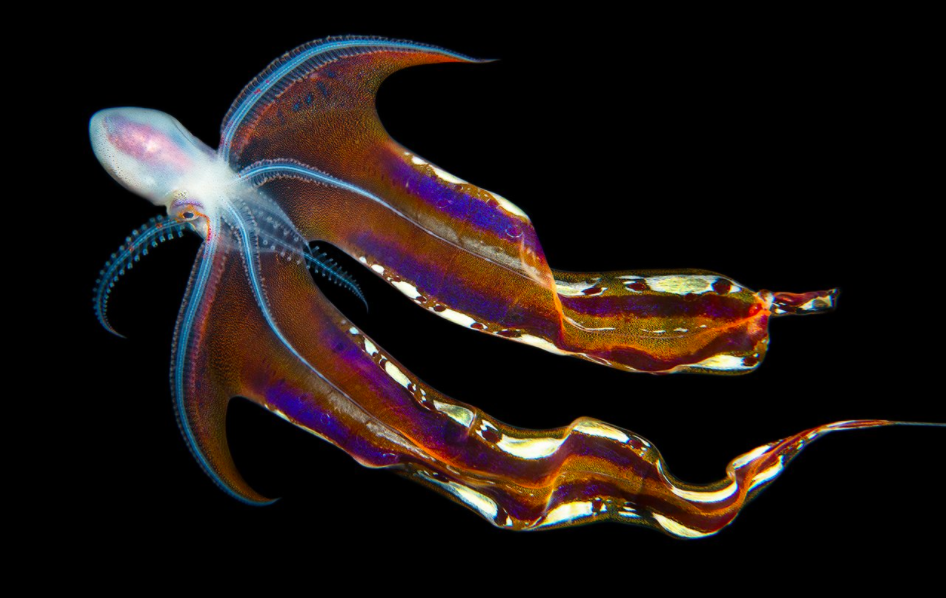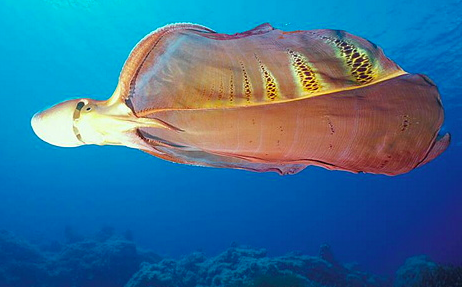 The blanket octopus or tremoctopus. Watch the psychedelic display in the video below and tell me they are not one of most miraculously beautiful animals.
The blanket octopus or tremoctopus. Watch the psychedelic display in the video below and tell me they are not one of most miraculously beautiful animals.
The blanket, the colorful web that gives them their name, is attached to two arms of the female and can be rolled up or unfurled at will. It is meant to scare off predators and can also be detached to misguide the predator’s attack.
And yeah, about male and females. In blanket octopuses, the female reaches 6 feet in length while the male never surpasses one inch. The female weighs around 10,000 times more then a male, the largest sexual dimorphism among any large animal. Male octopuses of all kinds do not have penises, sorry about that guys. One of their 8 arms is a hectocotylus, a sperm delivery arm. When the tiny male blanket octopus finds a female it tears off it’s hectocotyus arm and hands it over to the female who keeps it in their mantle cavity until later. And the male then dies. When the female is ready to lay eggs, it retrieves the little hectocotylus, squeezes it like a tube of toothpaste over its eggs and then lays them, 100,000 or more eggs at a time.
 Blanket octopi are immune to the stinging poison of the highly-dangerous Portuguese man of war. They yank the stinging tentacles off the man of war and then brandish them against predators, held by suckers in their shorter arms.
Blanket octopi are immune to the stinging poison of the highly-dangerous Portuguese man of war. They yank the stinging tentacles off the man of war and then brandish them against predators, held by suckers in their shorter arms.
Blanket octopi or the only octopi that live in the open sea in warm waters, away from shore or sea floor. Humans rarely see them and we know very little about them, we think there are four species of them The tiny male blanket octopi were only spotted for the first time in 2004. One of the most beautiful animals in the world, check out this video shot by Joseph Elayani off the Philippines.
Octopuses, like squid and cuttle fish are cephalopods and cephalopods belong to the crazily variable phylum of mollusks, and are therefore related to slugs, snails and mussels. They are invertebrates, but then 96% of animals are invertebrates. Octopuses somehow evolved great intelligence with a completely different nervous system organization then vertebrates. After all their evolution diverged from vertebrates 500 million years ago. We know about their intelligence mostly from studying Pacific Giant Octopuses in aquariums, they are escape champions and can recognize and react differently to different humans. Like most ocean animals octopuses not been studied much in the wild, and blanket octopuses not at all.
You become a scientist and figure these smart, soft, colorful critters out.
